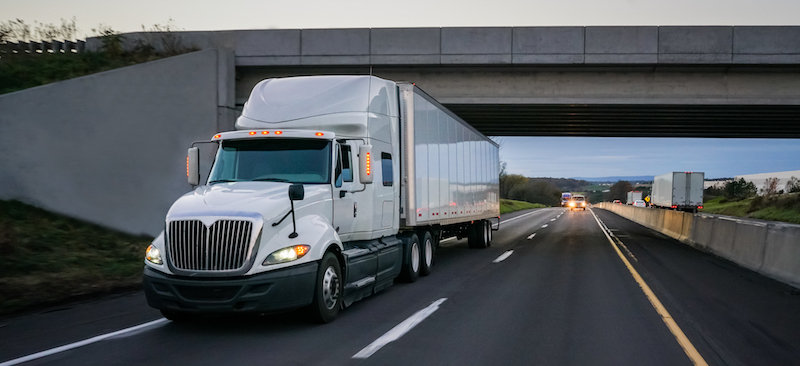Does Your Business Need to Worry About IFTA?
IFTA stands for International Fuel Tax Agreement and it exists to simplify the reporting of fuel use between Canada and the US. Within the contiguous United States and Canada, our roads and highways help us get to where we are going. But who takes care of these roads if they become damaged and in need of repair? Who pays the cost?
Private citizens are not the only ones that benefit from our highway systems. Many companies and individuals depend on it as a means of commerce. Getting goods from point A to Point B is their livelihood, and any deviation in their path could cost them money, which is why maintaining the IFTA is an essential part of the foundation of our economy.
Now, unless you work in the trucking or fuel industry, chances are you wouldn’t know about the IFTA. So, let’s take a look at this integral part of our transportation system and discover who they are and how they keep the world of commerce on the road.
What Is the IFTA?
An acronym for International Fuel Tax Agreement, the IFTA is a way for each state and 10 Canadian provinces to assist in the upkeep and maintenance of our roadways. Currently, in the U.S., the only states that are not a part of IFTA are the District of Columbia, Alaska, and Hawaii. Every other state participates.
For our neighbors to the North, the provinces that have entered into the agreement are as follows: Ontario, Quebec, Saskatchewan, Prince Edward Island, Alberta, British Columbia, Newfoundland, Manitoba, New Brunswick, and Nova Scotia.
Before the IFTA’s formation, each state and province required that trucking companies carried fuel permits for their region. As you can imagine, this process was time-consuming, costly, and extremely inefficient for all parties involved.
The amount of additional work that this process created cut into each companies profitability. If your company owns a fleet of trucks that travel the continental United States and into Canada, and you have to provide fuel permits for each truck. That adds up to a lot of working hours spent filling out applications and thousands of dollars in administrative costs paid by your company alone each year. Thankfully the IFTA fixed what was once a convoluted (and sometimes contradictory) process.
The Process
There is still an application process that companies must abide by; however, it’s one application filled out annually rather than the numerous applications as previously required.
Base State
Each company is required to register with a base state. This base state is where companies will submit their reports, pay their fuel tax, and maintain their records. The main IFTA office in that particular state will then hold the responsibility of disbursing funds to other states and performing audits of companies as needed.
Registering Vehicles
Not every vehicle or truck on the road is required to register with the IFTA. Companies and trucks must meet the following five requirements:
- Each vehicle must commercially travel between two IFTA jurisdictions
- Must weigh over 26,000 pounds
- Must have three or more axels on the power unit
- If it’s a bus, it must carry more than 20 passengers
- Must use diesel, propane, or natural gas
Application Process
Once you have filed your IFTA application with the main office in your base state, it goes through an approval process. For an application to be considered complete, it must contain the following information:
- Legal Business Name
- Address of Business
- Federal Business ID Number
- USDOT Number
Once the application process is complete, and your company or truck is approved, you will receive two decals to place on your vehicle. These decals must be on either the driver’s side or passenger side door, and a copy of the license must be in your vehicle at all times.
Since these decals are sent by mail, the state will send a temporary license via fax or email that you can keep on you until the actual stickers arrive. This small consideration helps trucking companies get to work once the application has been filed rather than waiting until their official documents arrive via snail mail.
The renewal applications will be sent to you automatically each year once your current license is nearing its expiration period.
Fuel Tax Report
IFTA taxes are what help keep our roads safe to drive on, so it only makes sense that they collect taxes every quarter. A tax payment made out to the Secretary of State for your base State and sent in with your reports for your fleet.
The dates each fuel tax report are due are as follows:
- First Quarter: covers January to March is due April 30th
- Second Quarter: covers April to June is due July 31st
- Third Quarter: covers July to September is due October 31st
- Fourth Quarter: covers October to December is due January 31st
Should the amount you pay accumulate from year to year causing an overage, that credit can go on to your next year’s statement or, in some cases, refunded to you.
Receipts and Records
Keeping good records is essential in this process. With numerous trucks in your fleet, the information can get convoluted and often quite confusing. Each time you make a payment, a receipt should be printed up and stored with that quarter’s paperwork. Each receipt should disclose the seller’s name and address, fuel type, date of purchase, the purchaser’s name, the vehicle registration number, how many gallons the purchaser acquired, and the total cost of the sale.
As if keeping tabs on your fuel tax reporting isn’t enough work, you must also keep track of the mileage of each vehicle. Per regulation, you must list this mileage in monthly increments. Your report must also include any fuel purchased at service stations.
Keeping Commerce Moving
Our roads and highways are the lifelines that help the trucking industry keep commerce moving. The IFTA helps to monitor those roads to ensure that they stay open and operational so we can get our products and services to where they need to go.
For more details on your company’s tag or title needs, visit our website or contact us for more information.

